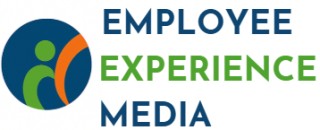Legal Framework and Employer Rights
Legal Considerations Surrounding Employer Requirements
Navigating the legal framework when employers request a doctor's note for a single day absence can be complex. Employment law provides the foundational structure, enabling employers to require documentation under certain circumstances. This may, in turn, affect the dynamics of sick leave policies across varying organizations. Employers have the right to ask for a doctor note, particularly if they suspect misuse of sick leave. State laws can also influence employer requirements, with some jurisdictions mandating paid sick leave and others allowing for more discretionary practices. Familiarity with these laws is crucial for both employers and employees to protect their rights and ensure compliance. The Family Medical Leave Act (FMLA) further complicates the landscape, as it sets specific stipulations around medical leave. However, it usually applies to leave beyond a single day, highlighting the need for clarity in policies at the organizational level. For employees, understanding their rights is essential. Knowing whether an employer can legally require documentation for short absences is a part of maintaining a balanced employment relationship. This understanding can safeguard against potential overreach by employers and protect employee privacy. The intricate interplay between law and workplace policies often demands that employers provide a clear rationale for their requests, ensuring these practices do not discriminate or infringe on rights. Doing so not only aligns with employment law, but also fosters an environment of trust, as delved into further in our guide to employee experience and satisfaction.Impact on Employee Trust and Morale
Employee Trust and Morale at Stake
The requirement for a doctor's note for a single day absence can significantly impact employee trust and morale. When employers exercise their rights to request medical documentation excessively, employees often perceive it as a lack of trust. This perception can be detrimental to the overall work environment. Workers who feel their honesty and integrity are questioned may become disengaged, impacting their productivity and job satisfaction.
Furthermore, the effort to obtain a doctor note for minor illnesses can be seen as an additional burden, especially when the sick leave is for only a day. The inconvenience and potential cost of visiting a medical professional for confirmation of a sick day can erode the goodwill in an employer-employee relationship.
- Employees may begin to question the company’s priorities regarding health and well-being.
- An atmosphere of distrust could lead to higher turnover rates, which are costly for employers in the long run.
- Encouraging an open line of communication regarding sick leave and time-off policies can help mitigate these issues.
For employers, striking the right balance between ensuring accountability and fostering a trusting environment is crucial. Policies that are perceived as punitive or excessive strip away at the intrinsic motivation of employees and can lead to a culture where staff members feel their primary role is to justify their absences to management.
Exploring wellness programs in the workplace can also help in shaping a more positive employee experience, promoting both health and trust.
Balancing Employee Privacy and Employer Needs
Finding the Right Equilibrium
Balancing employee privacy with employer needs is a complex and crucial aspect of handling sick leave and doctor note policies. Employers must navigate the delicate territory of handling sensitive health information while ensuring that business operations continue smoothly. Deciphering employment law and understanding sick leave policies are imperative aspects of this balancing act. Typically, employers request a doctor note to verify legitimate use of sick leave, especially when employees take multiple consecutive days off. While it's within an employer's scope to request documentation for extended absences, requiring doctor notes for a single-day absence might lead to unnecessary tension. This requirement can sometimes be perceived as an invasion of privacy, potentially undermining the trust established between employer and employee.Striking a Balance
Employers must avoid crossing lines that might seem intrusive while attempting to maintain business continuity. Employment law provides a framework within which these decisions should align, preventing invasive or unnecessary requirements that might violate employee rights. Besides considering legal aspects, employers should assess the cultural implications and morale impacts of their policies. Employers can foster better employee relations by accommodating reasonable sick leave requests without imposing excessive documentation demands. Understanding the individual health needs of employees, akin to exploring the top workspaces in South Tampa for their diverse benefits, can lead to a more empathetic approach to policy-making. In conclusion, aiming for equilibrium involves respecting both employer needs and employee privacy, harmonizing these elements to ensure fair yet flexible workplace policies.Comparative Analysis Across Industries
Industry-Specific Practices and Norms
When employers request a doctor note for a single day absence, practices can vary significantly across industries. Some sectors, particularly those with high safety and health considerations like healthcare and food services, may be more inclined to require doctor notes to ensure employees are fit to return work. These industries often adhere strictly to employment law and state law requirements to safeguard public health and maintain operational norms. In contrast, industries with a greater emphasis on creative outputs or knowledge work may adopt a more lenient approach. Here, the focus is often on trust and productivity, with employers less inclined to demand medical documentation for short-term absences. Companies in these sectors might prioritize employee rights and well-being, acknowledging that requiring a note for a brief absence could adversely affect morale and trust. Furthermore, smaller businesses might have different practices compared to larger organizations. Smaller enterprises, due to their personal employee relationships, may not strictly follow formal leave law protocols, allowing greater flexibility in non-critical absence cases.Role of Specific Leave Policies
The application of various leave policies, such as paid sick leave and fmla leave, heavily influences how doctor notes for single day absences are requested. Employees working in organizations that offer earned sick time might find their leave requests processed with less medical scrutiny. In such cases, the employees are trusted to manage their own health and time effectively, aligning with the organization's focus on work-life balance. For roles where consecutive days off are common, and the requirement to provide a doctor's note arises, employers tend to have structured procedures. These procedures help employees understand their rights under employment law and mitigate any potential disputes regarding sick leave flexibility.A Cross-Industry Perspective on Best Practices
Employers can benefit from incorporating industry insights into their policy-making processes. By understanding comparative practices, organizations can better align their family medical policies with the expectations and needs of employees. For instance, exploring norms in similar sectors might reveal emerging trends in the balance between privacy and necessity, which can guide decisions on medical leave and sick time requests. Ultimately, the effectiveness of any policy requiring documentation for brief absences is not only in compliance with legal standards but also in its impact on employee experience. By learning from industry comparisons, employers can develop more equitable and effective approaches to managing sick leave, ensuring fairness and maintaining positive employee relationships.Best Practices for Employers
Establishing Transparent Policies
Employers should focus on creating clear and transparent policies regarding the requirement of a doctor note for a single day absence. This involves outlining the conditions under which a note is required, such as consecutive days of sick leave or specific health concerns. Ensuring that these policies are communicated effectively to all employees helps in reducing confusion and potential conflicts.
Encouraging Open Communication
Open lines of communication between employers and employees can significantly impact the overall work environment. Employers can foster trust by encouraging employees to discuss their health concerns without fear of negative repercussions. This approach not only supports employee rights but also aligns with employment law by respecting privacy while addressing employer needs.
Leveraging Flexibility in Sick Leave Policies
Flexible sick leave policies can be a game-changer for employee morale. Employers should consider providing paid sick leave options that do not always require a doctor note, especially for short absences. Such practices can enhance employee trust and well-being, ultimately leading to improved productivity and reduced absenteeism.
Training Management on Empathy and Support
Training managers to handle leave requests with empathy and understanding can greatly enhance the employee experience. Managers should be well-versed in employment law and state law regarding sick leave and FMLA leave, ensuring they make informed decisions when handling requests for medical leave.
Regular Review and Adaptation of Policies
Regularly reviewing and adapting policies to align with current health trends and employee needs is crucial. Employers should stay informed about changes in leave law and employment law to ensure compliance and support employee health and rights effectively. This proactive approach can prevent potential legal issues and enhance the overall workplace environment.







